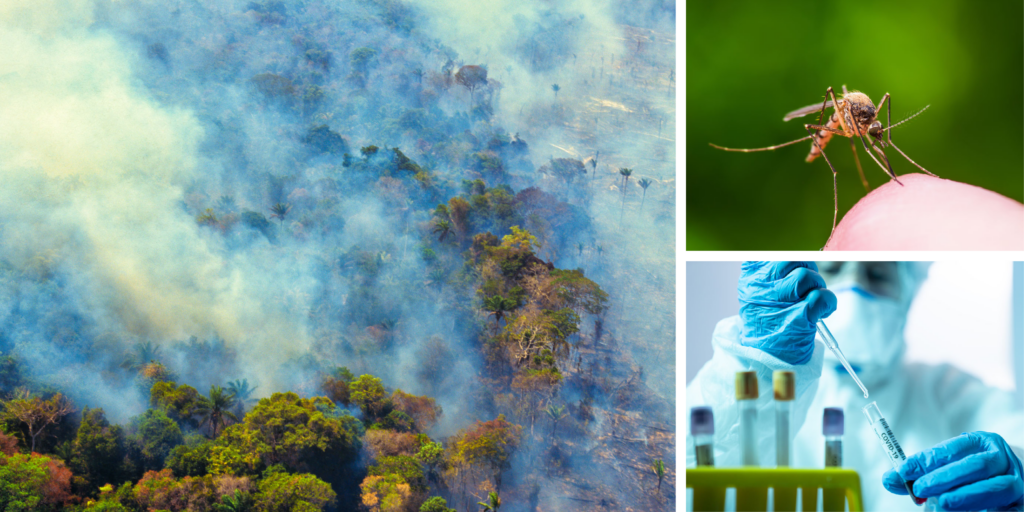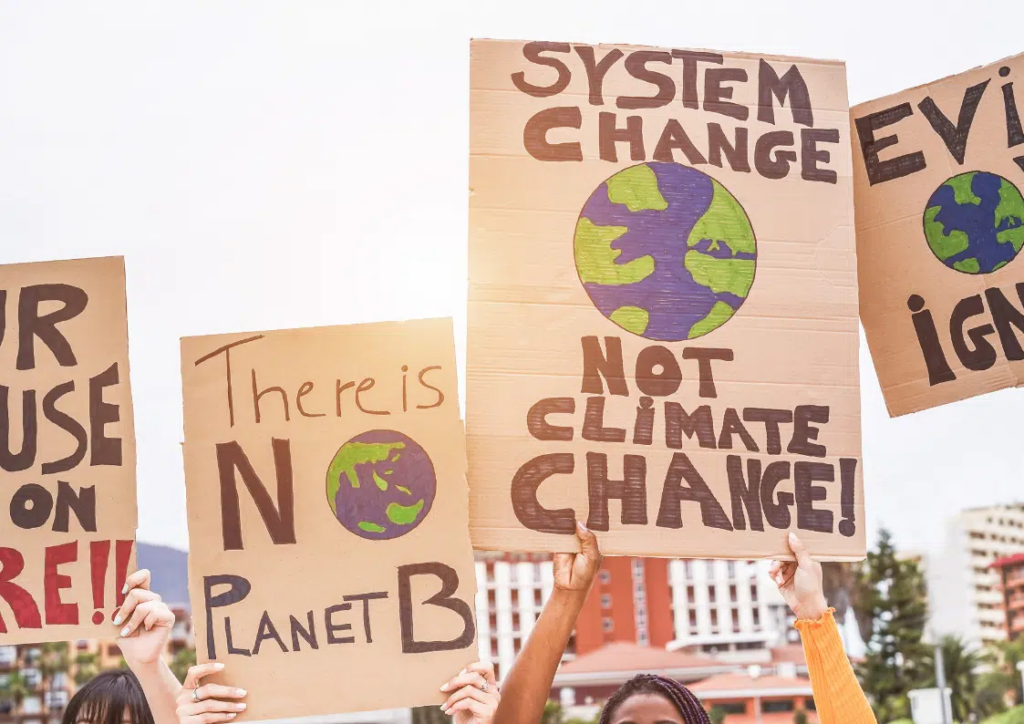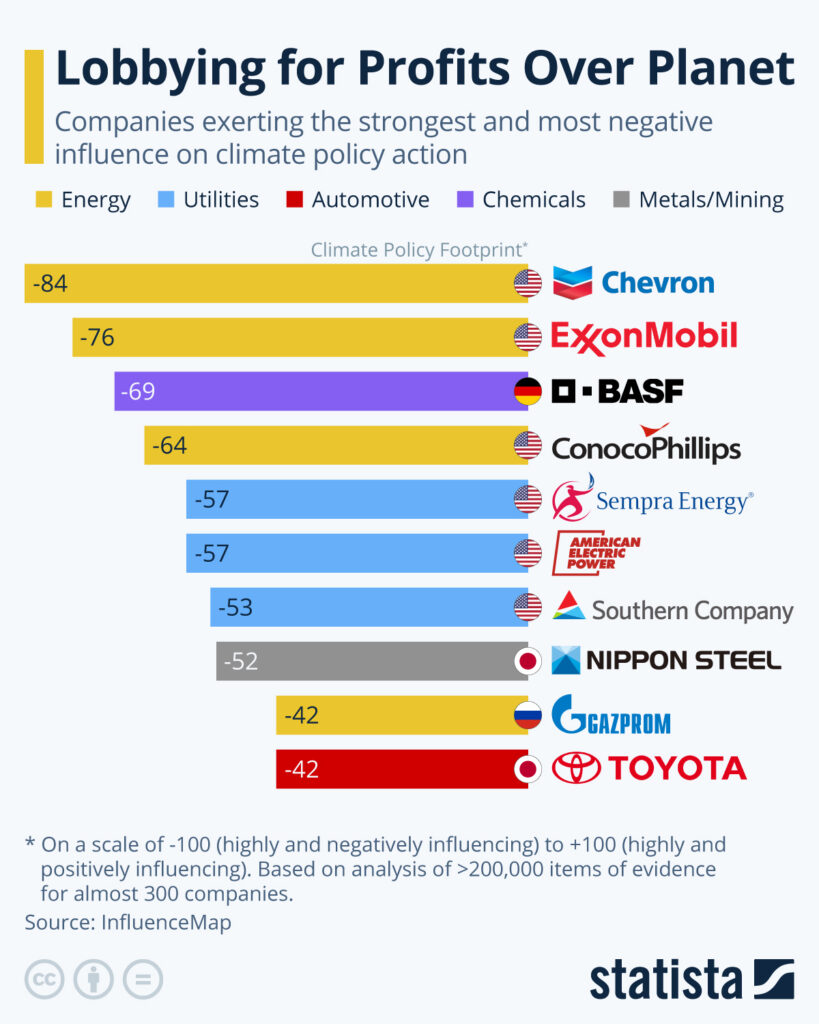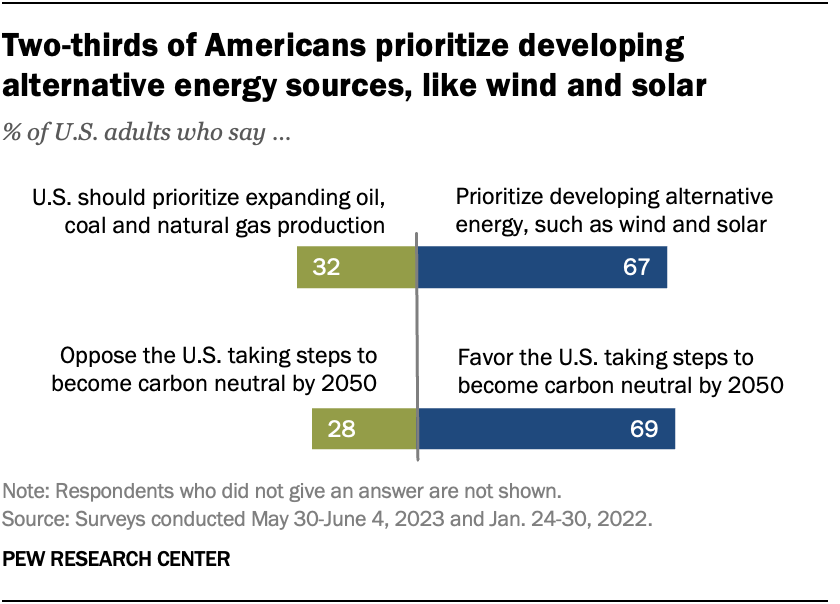Imagine a world where summer days are scorchingly unbearable, hurricanes increase in frequency and devastation each year, and food and water scarcity are no longer relegated to remote areas. This is not a dystopian future but a potential reality presented by climate change.
Climate change, classically defined as long-term shifts in temperatures and weather patterns but more recently defined as long-term temperature shifts due to human activities, has become one of the most pressing and controversial issues of our time. Effects of evolving weather and temperatures are certainly already being felt across the globe, impacting everything from ecosystems and economies to the health and well-being of individuals. While it is undeniable that human activity has contributed to the matter and exacerbated it in certain regards, questions remain of “How much and where are human beings responsible for climate change?” and “How much of the changing climate is a natural progression of Earth’s cycles?”.
In this blog, we will explore the multifaceted and often contentious debate surrounding climate change. While there is a growing scientific consensus around the human impact on climate change, public and political discourse remains divided. By exploring both sides of the argument, examining the health implications, and understanding the political and economic dimensions, we aim to provide a comprehensive view of the issue. Our goal is to move beyond the polarized rhetoric and foster a deeper understanding of how climate change affects our world and what can be done to mitigate its impact in the most sustainable ways possible.
Join us as we navigate the complex terrain of climate change and its profound implications for environmental health.
Understanding Climate Change
To grasp the full scope of the climate change debate, it’s essential to start with a clear understanding of what climate change entails. At its core, climate change refers to significant, long-term changes in the average weather patterns on Earth. While the planet’s climate has naturally fluctuated over millennia, the current changes are occurring at an unprecedented rate, which is hypothesized to be primarily due to human activities – an easy assumption to make as we have had massive effects over so many other environmental factors over a relatively short time.
Scientific Consensus
The overwhelming majority of climate scientists agree that the Earth’s climate is warming, and a slightly smaller but still certainly a majority agrees this warming is largely driven or at least exacerbated by human activities, particularly the burning of fossil fuels such as coal, oil, and natural gas. These activities release large quantities of greenhouse gases (GHGs) like carbon dioxide (CO2) and methane (CH4) into the atmosphere. These gases trap heat from the sun, creating a ‘greenhouse effect’ that leads to global warming.
Evidence supporting this consensus includes:
- Rising Temperatures: Global surface temperatures have risen significantly over the past century, with the past few decades being the warmest on record.
- Changes in Weather Patterns: Increased frequency and intensity of extreme weather events, such as hurricanes, droughts, and heat waves.
- Impact on Ecosystems: Shifts in the distribution of species, changes in migration patterns, and the bleaching of coral reefs.
- Melting Ice and Rising Sea Levels: Accelerated melting of polar ice caps and glaciers, leading to rising sea levels that threaten coastal communities.
Key Terms
To navigate the discussions on climate change, we should also make sure to lay out a few key terms:
- Greenhouse Gases (GHGs): Gases that trap heat in the atmosphere, contributing to the greenhouse effect. Major GHGs include carbon dioxide, methane, and nitrous oxide.
- Carbon Footprint: The total amount of greenhouse gases emitted by an individual, organization, event, or product, expressed as carbon dioxide equivalent.
- Global Warming: The long-term heating of Earth’s climate system observed since the pre-industrial period due to human activities, primarily burning fossil fuels.
The Health Impacts of Climate Change
Climate change is not just an environmental issue; it’s also a significant public health challenge as human and environmental health are closely intertwined. The changing climate affects human health in a multitude of ways, both directly and indirectly, creating new health risks and exacerbating existing ones.
Direct Health Effects
The direct health effects of climate change are those that occur as an immediate result of changes in weather patterns and temperatures. Some of the most pressing direct health impacts include:
- Heat-Related Illnesses: As global temperatures rise, so does the incidence of heat-related illnesses such as heat exhaustion and heat stroke. Vulnerable populations, including the elderly, children, and those with preexisting health conditions, are at heightened risk.
- Respiratory Issues: Increased temperatures can exacerbate air pollution and smog, leading to a rise in respiratory conditions like asthma and chronic obstructive pulmonary disease (COPD). Wildfires, which are becoming more frequent and severe due to climate change are an example of changing environmental conditions contributing to poor air quality and respiratory problems.

Indirect Health Effects
The indirect health effects of climate change are more complex and can be even more far-reaching. These effects often stem from changes in the environment that influence human health in less direct ways:
- Spread of Infectious Diseases: Climate change alters the habitats of disease-carrying vectors such as mosquitoes and ticks. This can lead to the spread of infectious diseases like malaria, dengue fever, Lyme disease, and Zika virus into new regions where people have little to no immunity.
- Food and Water Insecurity: Extreme weather events and shifting weather patterns can disrupt agricultural production, leading to food shortages and malnutrition. Changes in precipitation and the melting of glaciers affect the availability and quality of fresh water, potentially causing water scarcity and related health issues.
- Mental Health Challenges: The stress and anxiety associated with the impacts of climate change, such as displacement due to extreme weather events, loss of livelihoods, and the existential threat posed by global warming, can lead to mental health problems, including depression and post-traumatic stress disorder (PTSD).
Understanding these health impacts is crucial as we explore the broader debate on climate change. These effects highlight the immediate and tangible ways in which climate change is already influencing human health and well-being, pointing us to the need for urgent action and informed discussion on this critical issue.
The Debate: Perspectives and Controversies
The discourse around climate change is highly polarized, with a wide array of perspectives and arguments. This section delves into the primary viewpoints in the debate, highlighting the reasons behind the divide and the key arguments from both sides.
Climate Change Believers
The term “climate change believers” refers to those who accept the scientific consensus that human activities are the primary drivers of recent climate change. Their arguments are grounded in extensive scientific research and evidence.

- Scientific Evidence: Believers point to a vast body of evidence from scientific organizations like the Intergovernmental Panel on Climate Change (IPCC). This includes data on rising global temperatures, shrinking ice sheets, and increasing concentrations of greenhouse gases.
- Notable Proponents: Influential figures such as former Vice President Al Gore, figureheads like environmental activist Greta Thunberg, and many scientists advocate for urgent action to combat climate change.
- Policy Recommendations: Proponents advocate for policies aimed at reducing carbon emissions, transitioning to renewable energy sources, and implementing conservation practices. They emphasize the need for international cooperation and binding agreements like the Paris Agreement to limit the rise in global temperature.
Climate Change Skeptics AKA “Deniers”
On the other side of the debate are climate change skeptics, also known as “climate deniers”. This blanket term, often used to dismiss what is actually a varied and complex percentage of the population, essentially encapsulates anyone who either denies that climate change is occurring, questions the extent of human contribution, argues that its impacts are overstated, or questions the methods and motives of policies being introduced who claim to be made for the sake of climate change.
- Arguments Against Human-Caused Climate Change: Skeptics often argue that climate change is a natural phenomenon that has occurred throughout Earth’s history. They cite periods of warming and cooling in the geological record to support their claims.
- Notable Skeptics: Public figures like former U.S. Senator Jim Inhofe and organizations such as the Heartland Institute have been vocal in their skepticism of the mainstream scientific view on climate change.
- Critiques of the Evidence: Skeptics argue that climate models are unreliable and that predictions of catastrophic impacts are exaggerated. They also point to perceived inconsistencies in climate data and the influence of political agendas in the climate change narrative. The hypocrisy of world leaders attending the meetings of various organizations like the World Economic Forum via private jets is often pointed to. This seems to be one of the biggest opening points of skepticism that often grows into broader conspiracy theories.
- Alternative Explanations: Some skeptics propose alternative explanations for observed climate changes, such as solar variability, oceanic cycles, or other natural factors.
The divide between believers and skeptics is not just scientific but deeply intertwined with political, economic, and ideological factors. Understanding these perspectives is crucial for navigating the climate change debate and hopefully cultivating more productive discussions.
Political and Economic Dimensions
The debate over climate change extends beyond scientific discourse into the realms of politics and economics. Policy decisions, economic interests, and global cooperation all play critical roles in shaping the actions taken to address climate change.
Policy and Legislation
Government policies and international agreements are pivotal in combating climate change. However, the formulation and implementation of these policies often reflect the political and economic interests of different stakeholders.
- International Agreements: The Paris Agreement, adopted in 2015, is a landmark international accord aimed at limiting global warming to well below 2 degrees Celsius above pre-industrial levels. It requires countries to set and meet emission reduction targets, though these commitments are non-binding and vary by nation.
- National Policies: Different countries have adopted various policies to address climate change. For example, the European Union has implemented a cap-and-trade system to reduce carbon emissions, while countries like Denmark and Germany have invested heavily in renewable energy. In contrast, some nations have been slower to adopt stringent measures, often due to economic or political considerations.
Economic Interests
Economic factors significantly influence the climate change debate. The interests of various industries, the potential costs of action, and the benefits/risks of transitioning to a low-carbon economy are all central to the discussion.
- Fossil Fuel Industry: The fossil fuel industry, which includes coal, oil, and natural gas sectors, has a substantial economic stake in the climate change debate. These industries often lobby against stringent climate policies, arguing that such measures could lead to job losses, higher energy prices, and economic instability. They also fund research and campaigns that promote skepticism about climate change which exponentially complicates the issue.
- Renewable Energy Industry: In contrast, the renewable energy sector, encompassing solar, wind, hydro, and bioenergy, stands to benefit from policies promoting low-carbon energy sources. Investments in renewable energy technologies are seen as a way to reduce emissions, create jobs, and stimulate economic growth. Their own economic incentives also complicate the issue.
- Economic Implications: Transitioning to a low-carbon economy involves significant costs, including the decommissioning of fossil fuel infrastructure, retraining workers, and investing in new technologies. However, proponents argue that the long-term benefits, such as reduced healthcare costs, improved air quality, and the mitigation of climate-related disasters, outweigh the initial expenses.
The Role of Lobbying and Advocacy

- Industry Lobbying: Industries with significant stakes in the climate change debate, particularly fossil fuels, spend huge amounts of money on lobbying to influence policy in their favor. This includes funding research that casts doubt on climate science and campaigning against regulations that would harm their business.
- Environmental Advocacy: Environmental organizations and activists work to counteract industry lobbying, advocating for stronger climate policies, raising public awareness, and pushing for corporate accountability. Notable groups include Greenpeace, the Sierra Club, and the World Wildlife Fund (WWF).
Understanding the political and economic dimensions of the climate change debate is crucial for grasping why the issue is so contentious today. Policy decisions are influenced by a complex interplay of scientific evidence, economic interests, and political ideologies, making it challenging to reach a consensus on the best path forward.
Media and Public Perception
The media plays a significant role in shaping public perception of climate change. How the issue is presented and discussed can and certainly does influence public opinion, policy decisions, and the overall debate.
Role of Media
The media is a powerful tool for disseminating information about climate change. However, the way media outlets cover the topic varies widely, leading to different levels of awareness and understanding among the public.
- Coverage and Bias: Media coverage of climate change can be influenced by the editorial stance of the outlet, resulting in varying degrees of emphasis on scientific consensus or skepticism. Some media organizations prioritize scientific evidence and the urgent need for action, while others may downplay the severity of climate change or present it as a controversial topic with balanced views from both sides.
- Impact of Sensationalism: Sensationalist reporting can skew public perception, either by exaggerating the impacts of climate change to create fear or by sensationalizing the claims of skeptics to generate controversy. Both approaches often distort the public’s understanding of the issue.
- Misinformation: The spread of misinformation and disinformation about climate change, often amplified by social media, can further complicate public perception. False claims, misleading statistics, and conspiracy theories can create confusion and hinder informed decision-making.
Public opinion on climate change varies widely based on factors such as geographic location, political affiliation, education level, and personal beliefs. Research shows that public belief in climate change and support for action is influenced by media consumption, personal experiences with extreme weather events, and trust in scientific authorities. Surveys often reveal a significant divide in climate change beliefs along political lines, with conservatives tending to be more skeptical than liberals.

Final Thoughts Looking Ahead
In conclusion, the debate over climate change encompasses a range of perspectives, scientific findings, and socio-economic factors. While there are differing viewpoints, it’s crucial to acknowledge the overwhelming scientific consensus on the reality of human-induced climate change and its significant impacts on environmental health. Understanding the complexities of this debate requires consideration of the scientific evidence, political and economic dimensions, media influence, and public perception.
Moving forward, finding common ground is essential for effective climate action. This involves fostering open dialogue, promoting collaboration across sectors, and raising awareness about the urgency of addressing climate change. By emphasizing shared values, co-benefits, and collaborative solutions, we can overcome polarization and work towards sustainable and equitable outcomes. Collaborative solutions, facilitated through interdisciplinary efforts and public-private partnerships, are crucial for implementing effective strategies to mitigate and adapt to climate change impacts. Engaging communities in climate action tailored to their specific needs and contexts empowers individuals to take ownership of solutions and build resilience against climate-related risks.
Education and awareness are fundamental pillars in empowering individuals to understand and address climate change. By integrating climate education into formal and informal learning settings and conducting public awareness campaigns using diverse media, we can equip people with the knowledge, skills, and motivation needed to make informed decisions and take meaningful action.
Ultimately, addressing climate change requires collective action at local, national, and global levels. By coming together to tackle this pressing challenge, we can build a resilient and sustainable future for ourselves and generations to come.








